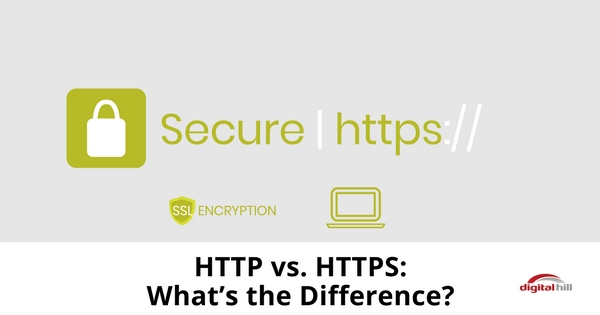HTTP vs. HTTPS: What’s the Difference?

In August 2014, Google officially announced that migrating your site to HTTPS would result in a minor search engine ranking boost. From that point, web developers have been making the switch one after another, sometimes without even understanding the underlying benefits.
In this guide, we look at the key differences between the old protocol (HTTP) and the new one (HTTPS), and enumerate the main reasons why you need to switch your website to HTTPS.
HTTP vs. HTTPS: What’s the Difference?
Hypertext Transfer Protocol (HTTP) is a system developed to help people send and receive information across the internet. It’s used on almost all websites to transfer data from web servers to browsers to allow users to view web pages.
HTTPS is simply a secure version of HTTP. You have seen this most often in e-commerce sites or sites where private information is to be shared. The “S” at the end stands for “Secure.” A major problem with the basic HTTP is that information sent via the protocol is not protected, meaning that data can be easily viewed, accessed, and potentially stolen. HTTPS protocols solve this problem by creating an encrypted connection between the server and browser using a Secure Socket Layer (SSL) certificate, thus protecting the information being sent or retrieved.
The main difference between the two, therefore, is the SSL Certificate. SSL Certificates encrypt the information sent from a browser so that even if the information was stolen along the way, all the hacker would find is extremely complex code. It becomes impossible to understand the message being sent due to the encryption.
In addition to the SSL Certificate, HTTPS protocols are also further secured by a Transport Layer Security (TLS) protocol. The TLS protocol ensures integrity, making it impossible to modify or corrupt data in transit. It also proves to users that they are communicating with the intended website, thus increasing authenticity.
To know whether you’re connected to a secure site, check the part of the web address before www. It should have “HTTPS,” with a preceding green padlock.
4 Reasons You Need to Move to HTTPS
There are many advantages of moving to HTTPS. For corporations, it can even help with brand building. However, businesses need to migrate for four main reasons;
1. Google has set a July 2018 deadline
Starting July 2018, if you still use HTTP, Google will warn Chrome users that your website is “Not Safe.” The warning will be displayed prominently in the Chrome address bar. Considering that more than 50 percent of internet users use the Chrome browser, this could have a grave impact on web publishers who fail to comply.
2. HTTPS is a prerequisite for AMP
Google developed Accelerated Mobile Pages (AMP) to ensure that content loads faster on mobile devices, and consistently favors AMP content for mobile searches. All other factors remaining constant, AMP content will be ranked higher than non-AMP content. To use the feature, however, publishers need HTTPS.
3. HTTPS is good for SEO
Are your blogs and web pages always performing poorly in search results even for queries you feel you should be dominating? The problem could be the fact that you still use HTTP rather than the secure HTTPS protocol. Google’s algorithms have been adjusted to favor HTTPS results over similar HTTP content.
4. Protects you and your customers’ data
If you’re a business, you should also migrate to HTTPS to help protect your data and the personal and financial information that customers send you on a daily basis. Without that protection, costly data breaches are bound to occur.
Make the Switch Today
Begin the migration from HTTP to HTTPS today. It’s simple, doesn’t take a long time on most sites, and could be the boost your online business needs to finally take off. Contact us to discuss!
